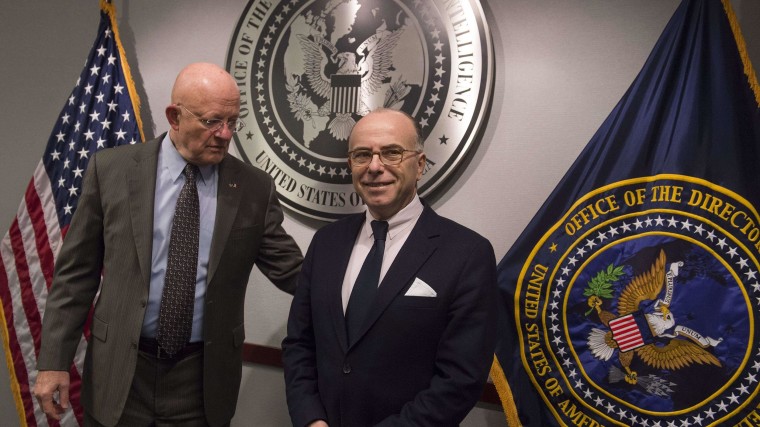Social media platforms should reject videos from terrorists the same way they ban child pornography, says France's homeland security secretary.
French Interior Minister Bernard Cazeneuve, who is in the United States for the White House summit on violent extremism, heads Friday to California's Silicon Valley for meetings at Google, Twitter, and Facebook.
"I want to start start a dialogue with these companies. This isn't about forcing them to take action, it's about enlisting their support," Cazeneuve told a group of reporters in Washington, DC.
"But they need to realize that we face a new threat."
Cazeneuve said the tech giants should do more to prevent terrorist organizations from posting recruiting videos that target a younger audience and that depict violent acts such as beheadings.
"What is the value of showing the Kouchi brothers killing a policeman, or Khoulibali declaring allegiance to the Islamic State?" Cazeneuve asked, referring to the terrorists in Paris who last month attacked the offices of satirical magazine Charlie Hebdo and a Jewish market.
Some members of Congress have expressed a similar concern, urging Twitter to block messages that call for violent terror attacks.
"American newspapers would have never allowed our enemies in World War II to place ads in, say, The New York Times for recruitment of people to go and fight against America," said Texas Republican Ted Poe, chairman of a House terrorism subcommittee, at congressional hearing in January. "So why do social media companies allow terrorist content on their platforms?"
A Brookings Institute study, to be published next month, found at least 45,000 Twitter accounts used by ISIS supporters last fall. After ISIS produced a video showing the beheading of American journalist James Foley, Twitter became more vigilant at suspending ISIS accounts.
Google says it cannot preview the roughly 300 hours of video uploaded to its YouTube website every minute. Instead, it depends on users to flag content that violates the site's standards.
Videos found to depict child pornography can be encoded with a digital fingerprint and blocked automatically when they are posted in any subsequent version, a Google representative explained Thursday.
But the company does not apply the same procedure to videos from ISIS or other jihadist groups. That's partly because mainstream news organizations upload videos that show some ISIS-generated material. And videos deemed to have educational, documentary, or news value are permitted on the site, even if they depict violent acts.
Google makes a distinction between video captured by eyewitnesses, such as the shooting of the Paris policeman after the Charlie Hebdo attack — which was not blocked — and videos made by the perpetrators of violent acts, such as ISIS beheadings — which are blocked when they are flagged by users.
"Community flagging works very well," the Google representative said. "The ISIS videos come down on average in under an hour, sometimes within a few minutes."
In a written statement, Twitter said it also depends on its users to flag unacceptable content within the roughly 500 million tweets sent every day. And the company pointed to reports that U.S. intelligence and law enforcement agencies sometimes track suspected terrorists through their use of social media.
An author of the forthcoming Brooking study, J.M. Berger, agrees. Allowing some ISIS supporters to continue using Twitter "preserves a substantial amount of open-source intelligence," he told a recent congressional hearing.
